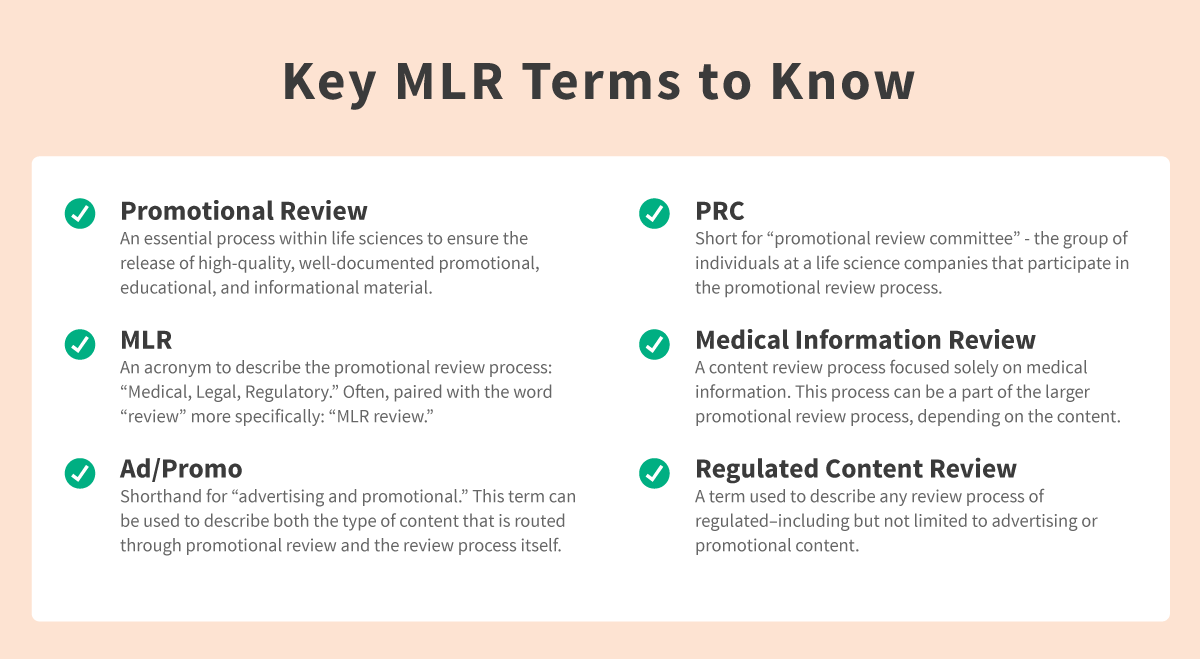Term: MLR
What does it mean?
MLR stands for Medical, Legal, and Regulatory, the core functions typically involved in reviewing and approving promotional content. Often, this acronym is used with “review” to describe the promotional review process: “MLR review.” MLR describes the primary groups involved in the review process, though not all.
Why are there so many acronyms similar to this?
“MLR review process” is a commonly used phrase across the industry, though variations of “MLR” exist as different iterations of the process can result in different names. Some companies transpose the letters to reflect a different workflow order, calling it “MRL.” Others explicitly fold Marketing teams into the acronym and call it “MMLR review” (Marketing, Medical, Legal, Regulatory). Regardless of format, the goal is the same: safeguard patient trust and ensure compliant, substantiated claims before content goes to market.
Term: Ad/Promo
What does it mean?
Shorthand for “advertising and promotional,” this term refers both to the content being reviewed and the overall category of commercial materials subject to regulatory oversight.
Where will you use it?
Ad/promo is used frequently in content workflows to distinguish between different types of materials, such as promotional vs. scientific or internal-facing content. It’s also a key category in FDA and EMA regulations.
Term: PRC
What does it mean?
PRC stands for Promotional Review Committee. This is the cross-functional group of stakeholders that evaluates marketing content before it is approved for distribution.
How do you use it?
When you have a draft under promotional review, you can say it is with your promotional review committee, or “with PRC.” Even teams that are adjacent to the review process should know this term to understand where they are with respect to the workflow. For instance, the sales team will want to know if content is waiting with the PRC for signoff.
Term: Medical Information Review
What does it mean?
This is a focused review process for content that communicates medical data, such as clinical presentations or HCP-facing materials.
Why does this need its own term?
While part of the broader medical legal regulatory review ecosystem, medical information review may require deeper validation of scientific claims. Therefore, companies often have an extra step in their review process for medical experts to ensure content compliance, making it beneficial to invest in software that can support both promotional and medical information content reviews. “Medinfo” and “medsci” are other terms used to describe medical information review.
Term: Regulated Content Review
What does it mean?
This broad term refers to the structured review of any content subject to regulatory compliance (beyond just promotional materials).
Why does this need its own term?
Understanding what qualifies as regulated content is critical. Review workflows should be clearly defined in SOPs, and accessible documentation should indicate what content types require formal review.



